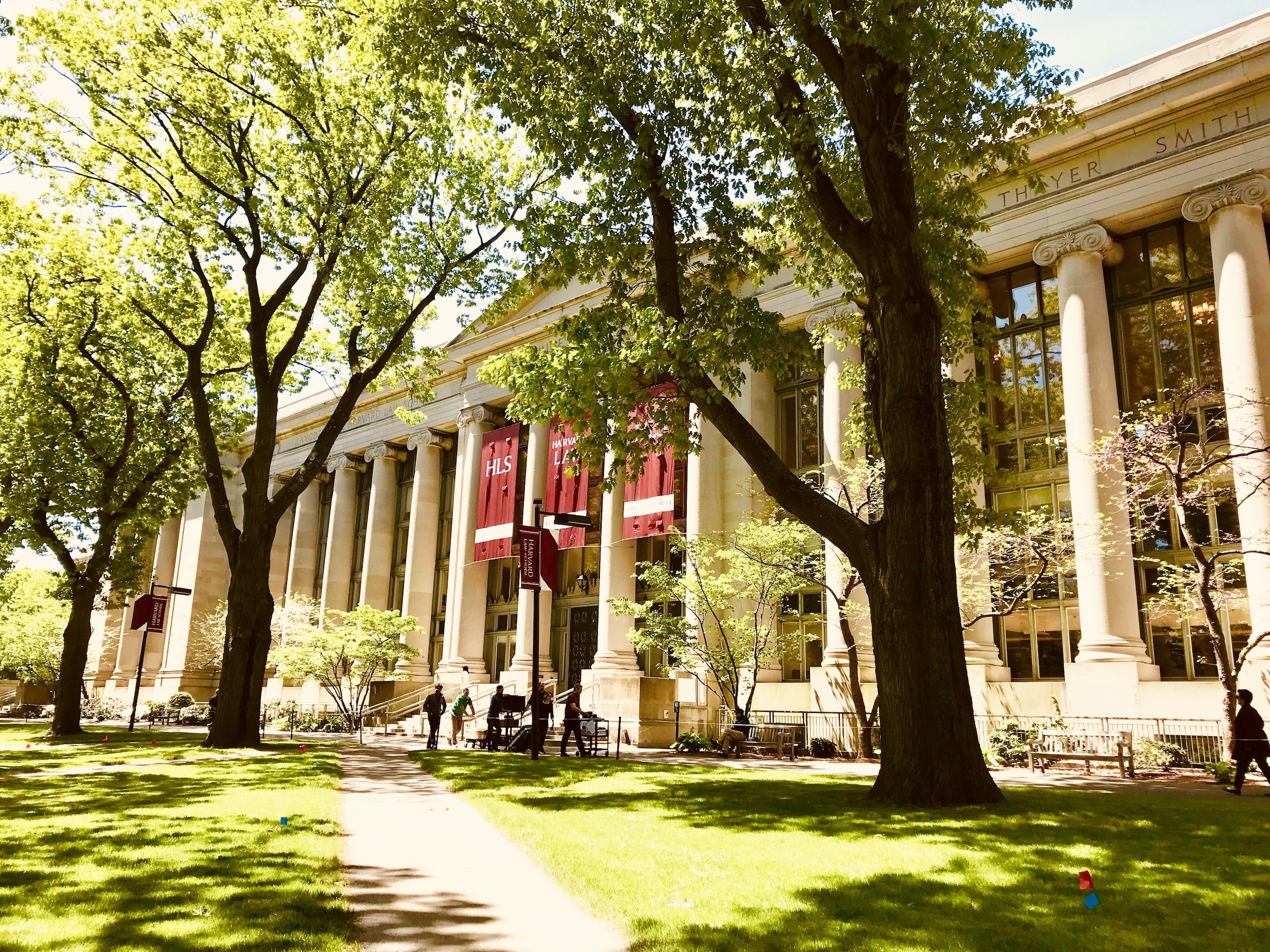Today we are going to talk about the new HBS application and what it means for applicants.
We've already gone on record with our thoughts on how something like "this" (a school eliminating required essays) might impact our work as consultants, so this post is going to break down what this means for applicants. First though, we are going to provide some context, to properly frame expectations.
This is unique to HBS.
“Ambiguity equals difficulty, but most of all it equals opportunity. Those who step up and deliver with confidence are going to dominate. ”
There are many people who are seeing this move from HBS and also seeing reductions to the number or word count of essays and they are trying to link everything together as some sort of "state of the industry." It's important for everyone involved to avoid this instinct as much as possible. Sure, all these schools are connected by their presence in the MBA community, but they operate as individual entities. Another MBA program will always prioritize the needs of its own constituents (board, university president, business school dean, faculty, alumni, students, etc.) over "what Harvard is doing." Yet outsiders always assume that the top dog will send everyone racing to react, which is generally not at all true. We have a motto here that goes "HBS doesn't set trends, it sets myths." When HBS went young and then other business schools started getting younger, the myth became "schools are trying to get younger." This was true of HBS (based on all stated evidence), but not true of most other schools (that were getting younger simply because the applicant pool was getting younger). What people assumed to be a trend was indeed just a myth. The same will be true here - people will speak of a potential trend in the essays when in reality it is a myth.
WHY is it unique to HBS?
The reality is that HBS can afford to experiment more with its application than most other schools. Stanford is the only other American business school with a yield (the percentage of admitted students who enroll) high enough to truly do whatever it wants. It's clear that for now at least, Stanford likes its essay set and wants to continue on that path. And for a program that believes in class building to the degree of alchemy, it stands to reason that they will want essay-based information for a long, long time. Outside of HBS and Stanford, it is hard to see another school out there that is so sure in its yield that it could remove the essays. Why is this? Well, because we live in an applicant-centric world, the assumption is always that the essays exist solely to share with a school who an applicant is. This is part of the reason, surely, but they also exist to share with a school what kind of fit that person might be with their specific program. In some cases, the essays are also read like tea leaves, to project who might actually attend. Places like Tuck, Stern, Ross, and Hass will basically tell you just that - they want to see a demonstration of specific interest, such that you aren't just sending out application seven of seven and treating their program like another dart at a dartboard. Without essays, schools lose a tremendous amount of insight into the question of "will this person attend?" - and without that insight, yield because even more difficult to project. HBS is very unique in knowing that it will always get a 90% yield basically no matter what. If nearly every admitted student will attend, why pressure does HBS feel to read those tea leaves? None.
What are HBS' reasons for doing this?
This is for HBS to say and we're not really the conspiracy theory types, but just to frame this properly, there are a lot of reasons it *could* be:
- Increasing the number of applications (either for revenue or for statistics) by removing the most laborious part of submitting an app,
- Reducing the power of "helpers" (consultants, alumni, family friends, and other people that can guide an applicant),
- Putting more emphasis on the interview (this is the stated reason, but it seems to be the most suspect, given that only a fraction of the applicant pool gets an interview),
- Measuring certain qualities.
We tend to focus on this fourth element because it is in keeping with things HBS has been doing for years and it is the only one of these four theories that actually puts the onus back on the applicant. Rather than just complaining about this or accusing HBS of some nefarious intent, let's focus on taking action and using the opportunity set before us. Which leads to...
Approaching the new HBS application.
We've now come full circle to the idea of "ambiguity equals opportunity." This is one of my favorite phrases and it completely applies here. HBS did not *remove* the essay from its application (as many have reported), they simply made it optional and open-ended. What that does is create a tremendous amount of ambiguity. Guess what else features a tremendous amount of ambiguity? Life! Business! Leading people! We live in a time where things are constantly in flux, new information is constantly becoming available, and decisions have to be made without having everything laid out in front of us. If you don't believe me, go watch Zero Dark Thirty, which is basically entirely about navigating ambiguity to make a (massive) decision. Go read about the state of venture capital in 2013, which is almost entirely about making sound and confident decisions it the center of massive doubt. Go back and read the stories on Netflix when they chanced their entire company on the idea of streaming content. If you want to be a leader in our modern world, you have to be able to deal with some unease and some uncertainty and some ambiguity. HBS wants to see how you handle this. So step up and attack the grey area with confidence! Not only does this show self-possession, but it also directly address two of the "big three" things that we've been instructing clients on for years.
When our clients apply to HBS, we tell them to keep three things paramount:
- Display leadership (not just instances of leadership, but "born with it" leadership skills and capacity)
- Display maturity (a self-assuredness that belies your years)
- Indicate a real desire to attend HBS (beyond just "its HBS")
Centering the previously required essays, application short answers (especially Why an MBA), and then the interview on these three pillars allowed our clients to, frankly, dominate the HBS application in a way that is not at all consistent with overall acceptance rates. This is because the large majority of applicants were not focusing on these three things, instead just trying to show off their "best" accomplishment while mitigating their failures and really never addressing what HBS really is. Why did HBS change to this open-ended assignment? Probably because they were tired of reading the same essays over and over and over. In the past, we had to force our clients to almost re-word the essay prompts. Now, we don't have to do that, but we will have to challenge them to take inventory and determine the ways in which those "big three" ideas are already reflected and how they need to be crystallized in the new essay portion. The more things change, the more they stay the same.
The exciting thing is that this year, such affirmed, clear, and strong portrayals should be even more readily rewarded, considering that the vast majority of candidates will flounder. Ambiguity equals difficulty, but most of all it equals opportunity. Those who step up and deliver with confidence are going to dominate.
If you are looking for help navigating Harvard Business School or any other program for Round 1, email us at mba@amerasiaconsulting.com.








